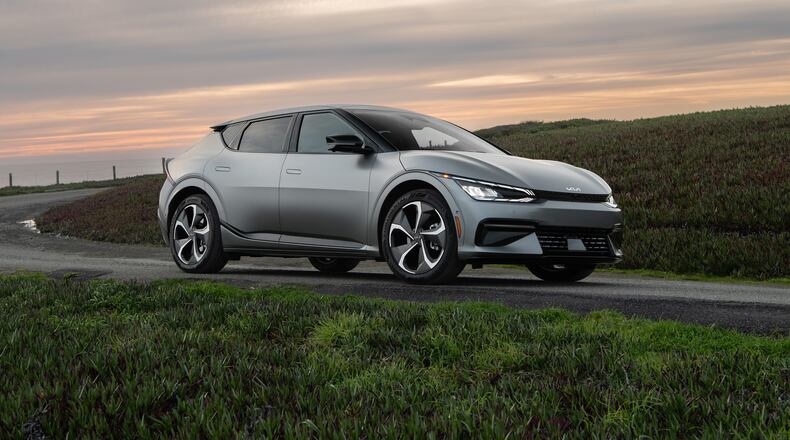As electric vehicle manufacturers flock to Georgia, a state long known for its peaches and pecans may soon be better known for its inverters and ions.
The Atlanta Journal-Constitution reported Monday that Kia Motors’ parent company, Hyundai Motor Group, is in talks to build the company’s second factory in Georgia near Savannah. Combined with EV maker Rivian’s plans for a factory and battery plant, the two developments could bring an estimated 16,000 jobs to the Peach State.
The pair of announcements also follow recent moves by battery manufacturers and material recyclers to come to Georgia.
EVs represent just a fraction of vehicles on the road today. However, their widespread adoption is a top priority for the Biden administration’s efforts to combat climate change.
The bipartisan infrastructure law that was passed last year included $7.5 billion in funding to expand the nation’s network of electric vehicle charging stations. Georgia would receive $135 million for this program.
Scientists have warned for decades that humans must rapidly reduce greenhouse gas emissions to avoid catastrophic levels of global warming. In the U.S., no sector contributes more heat-trapping gases than transportation, which was responsible for about 27% of all greenhouse gases produced nationally in 2020, according to data from the federal Environmental Protection Agency.
Analysis by the Massachusetts Institute of Technology and reported in The New York Times found that EVs produce far fewer greenhouse gas emissions over their life spans than vehicles with combustion engines.
But aggressive plans to expand EV production are running headlong into free market problems and the lingering effects of the pandemic.
Rivian CEO R.J. Scaringe recently warned that troubles automakers face sourcing computer chips could pale in comparison to looming challenges in sourcing components like lithium and cobalt for EV batteries.
“Put very simply, all the world’s cell production combined represents well under 10% of what we will need in 10 years,” Scaringe recently told the Wall Street Journal.
The problem exists across the entire supply chain, from mining to refining raw materials to assembly of battery packs, Scaringe told the Journal. Those choke points in battery development could cool the red-hot EV industry.
Rivian intends to build its own batteries at its future $5 billion manufacturing complex along I-20 in southern Walton and Morgan counties. It’s not clear where Hyundai Motor will source its batteries, but Reuters reported SK Battery America, which started production at a $2.6 billion factory in Jackson County earlier this year, is a supplier for Hyundai.
Members of the Bryan County community who spoke with the AJC were still digesting the news of the potential new Hyundai plant.
”I think it’s great,” said Joe Holloway, who has preached for nearly three decades at Ellabell Church of Christ near the potential EV plant. “I think it will do quite a bit ... for our schools and just about every part of our community.”
Local environmentalists, however, said they were concerned about waste and storm water runoff from the plant.
“Our mission is to protect, preserve and restore the water quality of the Ogeechee Basin,” said Damon Mullis, the riverkeeper and executive director of the Ogeechee Riverkeeper. “As such, this facility is a threat to the water quality of the Ogeechee River and the surrounding area and we will fight to protect our water resources from this threat.”
Keep Reading
The Latest
Featured




